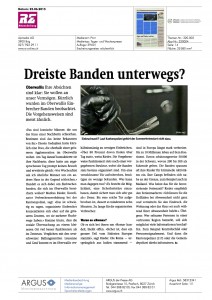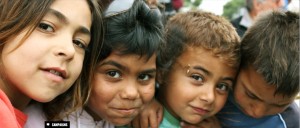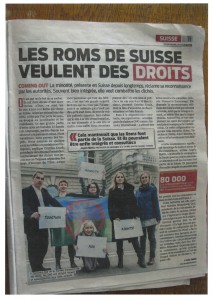Again a case of a Rroma wedding near Zurich were roughly 70 caravans gathered to celebrate a wedding. These travelling Rroma are from France and Germany (with a corresponding passport) and are members of a pentacostal church. A farmer rented them his land for 5’000 Swiss Francs. People in the village are annoyed and are asking why nothing is being done by the police.
A typical controversy, including the fact that people defecate in the open, and thus befoul the region and adjacent wood.
But the WORST are the commentaries: Bigots and racists seem to love these news.
- Hunderte Roma feiern Hochzeit. Nürensdorf stinkts. In: Blick. 22.07.2015. http://www.blick.ch/news/schweiz/zuerich/hunderte-roma-feiern-hochzeit-nuerensdorf-stinkts-id3997122.html



